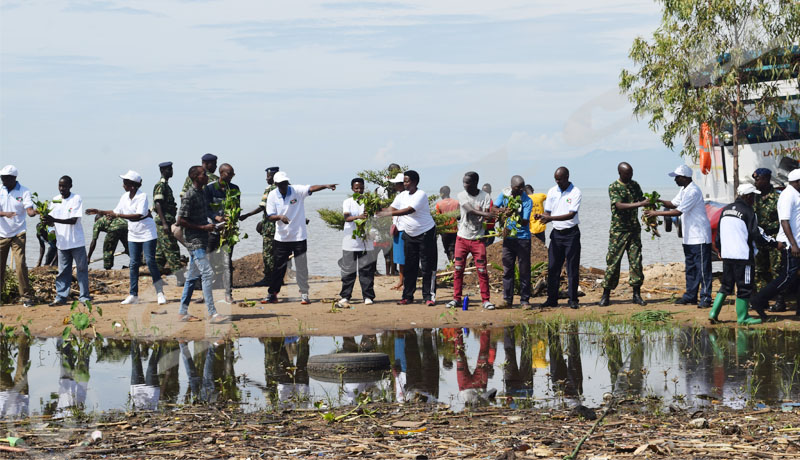“Our country has 24,787 water sources, 17,821 of them are preserved, 1,418 are disappearing while 2,508 have completely dried up,” said Emmanuel Ndorimana, permanent secretary to the Minister of Environment this 26 March.
It was in the context of the celebration of the International Water Day which is usually celebrated on March 22 every year.

Environment Ministry officials and partners in water sector removing hyacinth from Lake Tanganyika
Mr Ndorimana says Burundi government has banned the planting of trees absorbing a lot of water around water sources and marshes to prevent the latter from keeping running drying.
He says that several water sources which had dried up have reappeared since the order has been executed.
According to the Director General of Water and Sanitation at the Ministry of Water, Energy and Mines, 71% of Burundians living in rural areas have access to drinking water while almost 90% of Bujumbura residents can access drinking water.
Jeremy Hopkins, UNICEF representative in Burundi says that water sources are severely threatened in the world.
More than 2 billion people worldwide lack drinking water while more than 4 billion people live without access to adequate sanitation facilities.
“If we do not act immediately, the effects of climate change will spread,” says Hopkins, adding that nearly 4 billion people, including more than one billion living in cities, will be living with limited access to water by 2050.
All over the world, global warming causes concern for water resources and will lead to the displacement of thousands of people.
“This will have negative effects on health and will increase the risks of instability and conflicts,” he warns.
To deal with it, people must increase investment in watersheds and healthy water infrastructure as well as significantly improve the efficiency of water use, he says.
















 IWACU Open Data
IWACU Open Data

